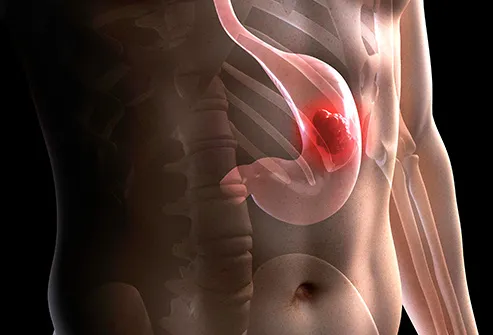- You are here:
- Home »
- Blog »
- Healthy Living Products »
- Gastrointestinal Cancer- Combine Conventional with Non-Conventional
Gastrointestinal Cancer- Combine Conventional with Non-Conventional
Gastrointestinal cancer isn’t one cancer. The term “Gastrointestinal Cancer” refers to cancers that run the entire length of the GI tract from the esophagus through the stomach, biliary system, pancreas, small, large intestines, rectum and finally the anus.

The GI tract in the human body presents a host of difficulties when trying to treat cancer.
The study linked and excerpted below states that bromelain and N-acetylcysteine “significantly inhibited cell proliferation...” The study doesn’t say that this supplementation is the best or only therapy available. The study simply reports that these two relatively inexpensive, non-prescription supplements “inhibit cell proliferation.”
Certainly you should consider conventional chemotherapy and or surgery. You need to learn about other forms of anti-oxidant supplements such as curcumin or green tea extract which may integrate with conventional chemotherapy.
I am both a cancer survivor and cancer coach. I was diagnosed with multiple myeloma in ’94 and have been supplementing with Wobenzym N for over 10 years now. The main ingredient in Wobenzym N
is bromelain. Wobenzym N
offers a host of health effects in addition to inhibiting GI cancer cell proliferation.
I recommend Wobenzym N. I take and recommend Now brand N-Acetyl Cysteine
.
For information about anti-oxidant supplementation as cancer therapy scroll down the page, post a question or comment and I will reply ASAP.
Thank you,
David Emerson
- Cancer Survivor
- Cancer Coach
- Director PeopleBeatingCancer
Gastrointestinal cancer“ refers to malignant conditions of the gastrointestinal tract (GI tract) and accessory organs of digestion, including the esophagus, stomach, biliary system, pancreas, small intestine, large intestine, rectum and anus.”
Bromelain and N-acetylcysteine inhibit proliferation and survival of gastrointestinal cancer cells in vitro: significance of combination therapy.
” In the present study, the efficacy of bromelain and N-acetylcysteine in single agent and combination treatment of human gastrointestinal carcinoma cells was evaluated in vitro and the underlying mechanisms of effect were explored…
Bromelain and N-acetylcysteine significantly inhibited cell proliferation, more potently in combination therapy. Drug-drug interaction in combination therapy was found to be predominantly synergistic or additive…
We report for the first time to our knowledge the growth-inhibitory and cytotoxic effects of bromelain and N-acetylcysteine, in particular in combination, on a panel of gastrointestinal cancer cell lines with different phenotypes and characteristics. These effects apparently resulted from cell cycle arrest, apoptosis and autophagy…”

